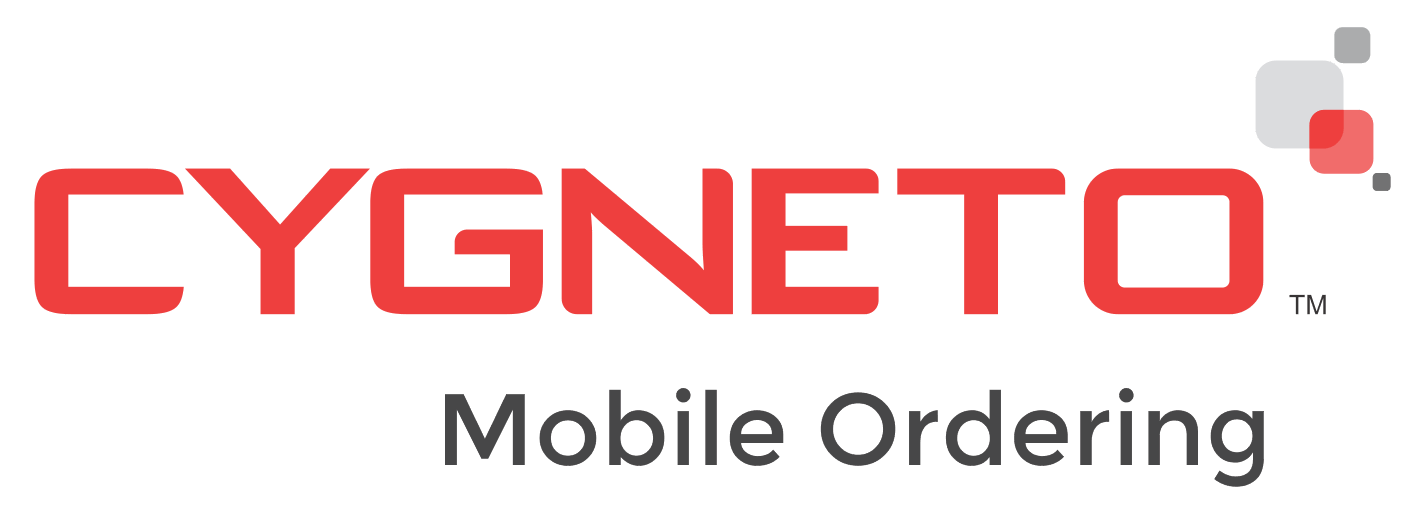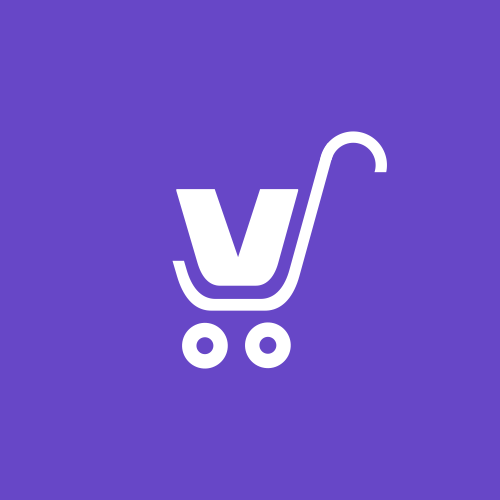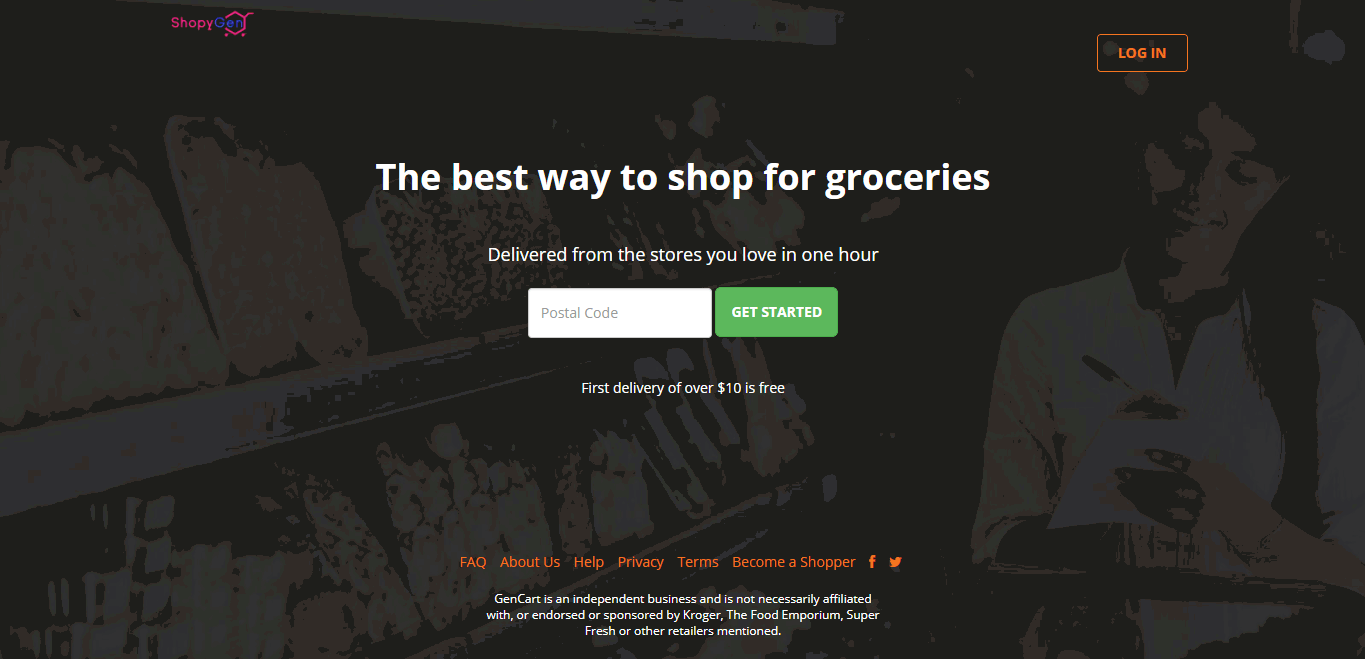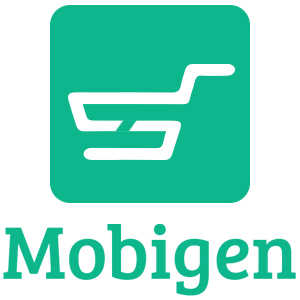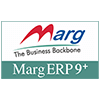Yes, most mobile store software is compatible with numerous devices and platforms, allowing you to run your business and track sales from anywhere. This is made possible by cloud-based solutions, which store data and provide easy access via a web browser or mobile application. This implies that as long as you have internet access, you may utilize the program on any device, making it useful and effective for mobile business owners.
List of Best Mobile Store Software
Ancoris is a premier software solution designed to create tailor-made business locators that cater to your unique requirements. Our focus is on improving your businesss productivity by providing an advanced and user-friendly locator, complete with to...Read More Ancoris
Cygento Mobile Ordering is a technology platform that boosts the expansion of manufacturers, distributors, wholesalers, and retailers. Through its robust sales features and solutions, Cygento empowers businesses to establish an online presence and ea...Read More Cygento Mobile Ordering
StoreHippo is an advanced and user-friendly eCommerce solution that provides all the essential features for a thriving online business. Its Mobile First strategy, flexible customization capabilities, and use of highly scalable technology make it the...Read More StoreHippo
VistaShopee is a digital solution for businesses of every kind. This robust platform offers a seamless experience for creating and managing websites and mobile apps that effectively promote and sell your products or services. With its user-friendly f...Read More VistaShopee
Discover the full capabilities of Mytrendin with our complimentary 30-day trial. Enjoy unlimited access and receive round-the-clock support via phone, email, and chat. Keep your system up-to-date with our weekly software updates, automatically receiv...Read More Mytrendin
Gencart is a eCommerce platform specifically created for grocery and food delivery enterprises. Taking inspiration from successful apps like Instacart and online stores such as Bigbasket, Gencart provides a complete solution for establishing and expa...Read More Gencart
MobiGen solution for businesses seeking to develop a consumer-to-consumer mobile app. With its state-of-the-art features, MobiGen provides a m-commerce mobile shopping cart that caters to all industries. This advanced technology enables businesses to...Read More Mobigen
Plus Accounting is a accounting software suitable for a wide range of industries including accounting firms, trading companies, distributors, and mobile shops. This comprehensive solution offers a range of features such as digital signature integrati...Read More Plus Accounting
Smart Retailer, a user-friendly software crafted to simplify your retail operations. This innovative tool offers a barcode generator for effortless tracking, various payment methods at checkout, sales commission monitoring, and a discount notificatio...Read More Smart Retailer
Marg ERP9+ Retail Shop Software solution for your shop or retail chain. With its advanced features and customizable options, this software streamlines all aspects of your business, ensuring optimum efficiency and accuracy. Ditch traditional billing m...Read More Marg ERP9+ Retail Shop Software
MobiCart is a highly customizable mobile commerce software that empowers you to personalize your customers shopping journey. With an intuitive platform, you can easily add new products and pages to your app, giving it a unique and distinct appearance...Read More MobiCart
Opera b2b, an industry-leading distribution platform that links games and apps with a global audience of 350 million through Operas mobile browsers and network operators. With a monthly reach of 100 million users, this platform offers app developers...Read More Opera b2b
GN Mobile is a suite of cutting-edge products designed to enhance business productivity, improve customer relations, and boost revenue. With a strong focus on maturity, flexibility, and driving enterprise growth, GN Mobile empowers businesses to gain...Read More Gn mobile
CellSmart POS is a wireless dealership software for streamlining your business and boosting growth. Tailored specifically for wireless stores, our innovative platform empowers you to run your business seamlessly from any location of your choice. From...Read More CellSmart POS
Zenoti is the go-to solution for spa and salon managers, providing a comprehensive all-in-one platform. It streamlines the management of appointments, billing, customer relationships, employee schedules and payroll, inventory, and marketing campaigns...Read More Zenoti
Say hello to Prime Mobile And Accessories solution for seamless personal financial management. No need for tedious training or frequent updates, this user-friendly software has got you covered on your mobile device. Experience effortless and efficien...Read More Prime Mobile And Accessories
Zepo is a enterprise-grade eCommerce platform that enables you to grow your online business by reaching customers across all channels. With Zepos intuitive tools, you can create a streamlined shopping experience for your customers through your websit...Read More Zepo
Discover the game-changing capabilities of HDPOS smart is a software for electronic businesses. This affordable solution simplifies Point of Sale operations and inventory management with its intuitive interface and extensive features. Say goodbye to...Read More HDPOS smart for Electronic
Learn More About Mobile Store Software
- What Is Mobile Store Software?
- What Are The Recent Trends In Mobile Store Software?
- Benefits Of Using Mobile Store Software
- Important Factors To Consider While Purchasing Mobile Store Software?
- What Are The Key Features To Look For In Mobile Store Software?
- Why Do Businesses Need Mobile Store Software?
- How Much Time Is Required To Implement Mobile Store Software?
- What Is The Level Of Customization Available In Mobile Store Software?
- Which Industries Can Benefit The Most From Mobile Store Software?
- Conclusion
What Is Mobile Store Software?
Mobile store software is a digital system that enables businesses to manage their store operations using a mobile smartphone. It offers a consolidated platform for managing inventory, sales, customer data, and other critical areas of retail operations. With the growing reliance on smartphones, mobile store software has become critical for modern businesses to remain competitive and reach their customers effectively.
Here are some important characteristics to look for in mobile store software.
1. Inventory Management: One of the primary purposes of mobile store software is to track and manage inventory. It enables merchants to monitor stock levels, track product movement, and establish automated reorder points to ensure that popular items are never out of stock.
2. Point Of Sale (POS) System: Mobile store software should have a POS system that allows retailers to complete transactions safely and quickly using their mobile device. This simplifies the checkout process and gives real-time sales data to ensure accurate reporting.
3. Customer Management: Keeping track of customer information is critical to developing and maintaining relationships with them. Mobile store software enables retailers to keep client data, purchase history, and other critical information in order to provide personalized services and promotions.
4. Multi-Channel Integration: In today's digital economy, merchants must have a presence across various channels. The correct mobile shop software will integrate with e-commerce platforms, social media, and other online marketplaces, enabling businesses to access a larger audience
5. Analytics And Reporting: Mobile store software may offer detailed data and analytics to assist retailers make informed decisions. This includes sales data, inventory levels, employee performance, and other information that helps retailers understand their business operations. When choosing mobile store software, seek for user-friendly interfaces, customizable capabilities, and dependable customer service. When selecting the best software for your store, keep your company's unique needs and budget in mind.
What Are The Recent Trends In Mobile Store Software?
Mobile shop software has emerged as a crucial tool for firms seeking to remain competitive in today's rapidly changing digital market. With the advent of e-commerce and smartphone usage, mobile store software has grown quickly to fulfill the needs of both customers and businesses.
We'll look at the latest trends in mobile shop software and how they might help your business.
1. Cross-Platform Compatibility: Cross-platform interoperability is one of the most popular features in mobile store software. With an increasing number of devices and operating systems, organizations require a solution that can serve a varied consumer base. This is where cross-platform compatibility comes in. It enables businesses to provide a unified shopping experience across several platforms, delivering a seamless and uniform experience for customers.
2. Integration With Emerging Technologies: The advent of new technologies such as artificial intelligence, virtual reality, and augmented reality has created new opportunities for mobile shop software. Integrating these technologies can improve the user experience by making it more interactive and personalized. For example, AI-powered chatbots can interact with clients in real time, offering personalized recommendations and help.
3. Mobile Wallet Integration: With the advent of digital payments, mobile store software is now being integrated with major mobile wallets like Apple Pay, Google Pay, and Samsung Pay. This service enables customers to make secure and convenient purchases using their preferred payment method. It also eliminates the need for clients to enter their payment information each time they make a purchase, resulting in a speedier and more efficient checkout procedure.
4. Personalization: The demand for tailored experiences is increasing, and mobile store software is growing to fulfill that demand. Businesses may now personalize their mobile retail experiences using customer data and analytics. This can include personalized recommendations, targeted discounts, and tailored messaging, all of which can increase consumer happiness and loyalty.
5. Multi-Channel Selling: Mobile shop software is no longer exclusive to mobile devices. It has grown to incorporate more channels such as social media, marketplaces, and even physical storefronts. This capability, known as multi-channel selling, enables firms to reach clients on several platforms while maintaining a uniform buying experience across all channels.
Benefits Of Using Mobile Store Software
Mobile store software is a crucial tool for every business trying to succeed in the digital age. With the surge of smartphone usage and online purchasing, maintaining a mobile presence is critical for remaining competitive and gaining new customers.
We'll look at the advantages of adopting mobile shop software and how it can help your business operations.
1. Improved Customer Experience: Mobile store software provides clients with an easy-to-use platform for browsing and purchasing things. The software's adaptable design allows customers to access your store from any device, improving their entire purchasing experience. The platform also supports personalized recommendations based on client data, making the shopping experience more efficient and tailored to their tastes.
2. Increased Sales And Revenue: Having a mobile store can greatly boost your sales and earnings. The software's capabilities, including as push notifications, targeted marketing, and discounts, can increase consumer involvement and inspire customers to make additional purchases. Furthermore, the software's connectivity with payment gateways makes the purchasing procedure simple and straightforward, resulting in improved conversion rates and increased revenue for your company.
3. Effective Inventory Management: Mobile store software has inventory management tools that allow you to track and adjust your product inventory in real time. This allows you to easily track stock levels, avoid stockouts, and manage product variants. This feature ensures that your consumers have access to the products they desire, reducing the risk of lost sales due to out-of-stock items.
4. Data Analysis And Reporting: Another big advantage of employing mobile store software is the ability to perform sophisticated data analytics and reporting. The program may provide reports on sales, customer behavior, and other key parameters, providing you with important insights into your store's success. This information can help you make more educated decisions to improve your business operations and drive growth.
5. Cost-Effective Solution: Mobile store software is an affordable alternative for businesses of all sizes, particularly small and medium-sized firms. It eliminates the requirement for a physical storefront, resulting in significant savings on rent, electricity, and decor. A mobile store allows you to reach a larger audience without incurring the fees associated with traditional retail.
6. Ease Of Management: Managing a mobile store is far easier and less time-consuming than managing a physical store. The software allows you to add, remove, and update products with a few clicks. You may also manage orders, payments, and customer support from a single platform, eliminating the need for different tools and systems.
Important Factors To Consider While Purchasing Mobile Store Software?
As more people rely on mobile devices for purchasing, having a dependable and efficient mobile store software has become critical for businesses. With so many alternatives available, selecting the best mobile store software might be difficult.
To help you make an informed decision, these are the key elements to consider when selecting mobile shop software:
1. User-Friendly Interface: The mobile store software should have an intuitive interface that is simple to access and operate. This will make it easier for you to run your store, as well as for your consumers to browse and shop.
2. Multi-Platform Compatibility: To reach a larger client base, your mobile store software should be compatible with a variety of platforms, including iOS and Android. It should also be responsive, which means it will react to changing screen sizes.
3. Payment System Integration: The mobile store software should be seamlessly integrated with a variety of payment systems, allowing your consumers to conduct secure and convenient transactions. This can include credit/debit card alternatives, online wallets, and even pay-on-delivery.
4. Inventory Management: A decent mobile store software should include sophisticated inventory management tools that will allow you to keep track of your products, their availability, and automatically update stock levels to avoid overselling.
5. Customization Options: Look for mobile shop software that allows you to personalize the look and layout of your app or website to reflect your brand's image. This will help you provide your customers with a one-of-a-kind, visually appealing buying experience.
6. Customer Assistance: Ensure that the mobile store software you chose provides dependable and timely customer assistance. This can come in helpful if you run into any technical difficulties or have questions about the software.
7. Analytics And Reporting: To help you make informed business decisions, the mobile store software should include thorough analytics and reporting capabilities. This will allow you to track sales, consumer behavior, and other key information.
8. Scalability: As your firm expands, you may need to broaden your product offerings and consumer base. As a result, it is critical to select mobile shop software that is scalable and can meet your future requirements.
9. Reviews And Ratings: Before making a purchase, conduct research and read reviews and ratings from other customers. This will help you better grasp the software's capabilities and potential concerns. Investing in dependable and effective mobile store software can help you grow your business and improve the client shopping experience. By taking these crucial variables into account, you can make an informed selection and select software that is tailored to your specific company requirements.
What Are The Key Features To Look For In Mobile Store Software?
Mobile shop software, often known as an m-commerce platform, is a vital tool for organizing and maximizing online sales via mobile devices. As the need for mobile shopping grows, businesses must invest in the correct mobile store software to give a seamless and engaging shopping experience to their customers. However, with so many options on the market, it can be difficult for customers to choose the correct one.
To help you make an informed decision, below are the essential characteristics to look for in mobile store software:
1. User-Friendly Interface: One of the most important considerations when choosing mobile store software is its usability. It should have an intuitive and simple user interface that allows you to efficiently manage your store and products. A cluttered and confusing interface can cause confusion and annoyance for you and your clients.
2. Responsive Design: Since mobile devices account for the majority of online sales, the software must be responsive. It should adapt to different screen sizes and resolutions, giving your customers a consistent purchasing experience regardless of the device they use.
3. Multiple Payment Methods: A good mobile store software should include a number of payment alternatives to meet your customers' different needs, such as credit/debit cards, mobile wallets, and cash on delivery. This feature is essential for enhancing revenue and customer happiness.
4. Inventory Management: The software should include sophisticated inventory management features that allow you to keep track of your goods and avoid overselling. It should also provide real-time updates on product availability, allowing you to prevent out-of-stock scenarios.
5. Product Customization: Given the growing desire for personalized items, the software should enable you to provide customization options to your clients. It could take the form of unique phrases, engravings, or custom graphics, depending on your goods.
6. Customer Data Management: Data is essential for understanding your consumers' purchase habits and improving their shopping experience. As a result, the program should provide sophisticated customer data management features such as client profiles, purchase history, and preferences.
7. Marketing And Promotion Tools: To attract new consumers and keep existing ones, the software should have marketing and promotion features such as discount codes, email marketing, and loyalty programs. It aids in growing sales and fostering client loyalty.
8. Order Management: Another important function to look for is order management, which allows you to track and fulfill orders efficiently. The program should also provide customers with real-time updates on the status of their orders, thereby improving their shopping experience.
9. Analytics And Reporting: The software should provide comprehensive analytics and reporting capabilities, allowing you to track sales, inventory, and customer data in order to make informed decisions. It aids in recognizing trends, refining plans, and increasing overall sales.
10. Customer Support: Last but not least, a reputable mobile store software should provide outstanding customer service, including rapid assistance in the event of a technical difficulty. Look for software with a dedicated support team available via email, phone, and chat.
Why Do Businesses Need Mobile Store Software?
The rise of mobile devices has resulted in a significant shift in customer behavior, and businesses must adapt to remain relevant and competitive. Investing in mobile store software is an important step toward adapting to this transformation. But why do businesses require mobile store software?
Here are the main reasons why:
1. Reach A Wider Audience: With mobile devices accounting for the vast majority of global internet traffic, mobile store software enables businesses to reach a wider audience. This means more prospective clients and a better possibility of generating sales.
2. Convenience For Customers: Mobile store software allows customers to browse and make purchases from any location and at any time. With a user-friendly layout and simple navigation, it improves the whole customer experience, resulting in customer happiness and loyalty.
3. Increase Sales: Mobile shop software allows businesses to tap into mobile commerce, which has been quickly expanding over the years. Businesses may drive sales and revenue by using intuitive features such as push notifications, targeted offers, and easy checkout.
4. Real-Time Data Tracking: Mobile store software enables businesses to track data in real time and make more informed decisions. Analyzing customer behavior, purchasing habits, and sales trends enables firms to optimize their goods and marketing strategies for optimal effectiveness.
5. Stay Ahead Of The Competition: In today's fast-paced market, it is critical to stay ahead of competitors. Businesses that use mobile store software get a competitive advantage by providing their customers with a convenient and personalized purchasing experience.
How Much Time Is Required To Implement Mobile Store Software?
The time required to adopt mobile shop software varies depending on various aspects, including the software's complexity, the size of your organization, and the level of customization necessary. The implementation procedure can last anything from a few weeks to many months. The first step in adopting mobile store software is to choose the best option for your organization. This includes researching, demo sessions, and consulting with the software provider.
After you've chosen a suitable software, the next step is to design the implementation procedure. During the planning phase, you will sketch out your business processes, identify any necessary connections with existing systems, and establish an implementation timeframe. This step is critical because it establishes the groundwork for a successful implementation. Once the planning is complete, the real implementation can begin.
This includes configuring, migrating data, and creating user accounts. Depending on the complexity of the program and the size of your company, this procedure can take a few days to a few weeks. After the software has been configured and the data has been sent, it is time to train. All relevant staff should receive training on how to use the program successfully.
This is a crucial step because it provides a smooth transition to the new system. Finally, the software is ready to go live. It is recommended that a trial run be performed before fully running the software to detect any issues that need to be resolved. Once all of the problems have been worked out, your mobile store software is officially integrated and available for use.
What Is The Level Of Customization Available In Mobile Store Software?
Mobile store software provides a wide range of features and functionalities to help businesses manage their operations, inventory, and customer interactions on a mobile platform. One important factor to consider when selecting mobile store software is the level of customization available to match your individual business requirements. So, what level of customisation is allowed in mobile shop software?
Let's dig deeper into this subject so you can make an informed decision for your business. Customization in mobile shop software refers to the ability to modify the software to your own business needs, such as branding, user interface, and workflow. It enables organizations to adapt the software to reflect their vision and branding, resulting in a seamless and distinctive consumer experience.
The extent of customisation in mobile store software varies depending on the software supplier. Some software may allow for little customization, but others provide substantial customization choices to meet a wide range of corporate requirements. The extent of customisation is also determined by the type of software used, such as cloud-based or on-premises, with the latter providing for greater customization options.
When it comes to branding, most mobile store software allows you to personalize the look of the app or website using your logo, brand colors, and fonts. This not only helps to raise brand awareness among customers, but it also offers your company a professional and consistent image across all channels. Furthermore, customization of the user interface and workflows enables enterprises to tailor the program to their current procedures and preferences.
This involves customizing product navigation, classification, and layout, as well as producing customizable reports and dashboards to improve company performance monitoring and analysis. Another important aspect of customisation is the ability to interface with third-party programs or tools. This allows businesses to integrate their mobile store software with existing systems or services, such as accounting, analytics, or marketing platforms. It not only speeds operations, but also eliminates the need for human data entry, lowering the possibility of errors.
Which Industries Can Benefit The Most From Mobile Store Software?
Mobile store software is an invaluable resource for businesses in a variety of industries seeking to improve their operations and attract a wider consumer base. It provides a variety of features and benefits that can significantly increase an organization's productivity and profitability.
In this buyer's guide, we'll look at which sectors can profit most from using mobile shop software.
1. Retail Industry: To remain competitive in the retail industry, excellent inventory management, client interaction, and frictionless transactions are critical. Mobile store software provides real-time inventory tracking, digital POS systems, and customer loyalty programs that can tremendously benefit merchants. It streamlines operations, enhances the customer purchasing experience, and delivers useful information for business growth.
2. Hospitality Industry: Hotels, restaurants, and other hospitality organizations can all profit from mobile shop software. It improves operational efficiency and streamlines the visitor experience by offering options like online booking, mobile check-ins, and room service orders. Additionally, it enables tailored interactions with clients, resulting in a memorable and good experience.
3. E-commerce Industry: Given the popularity of e-commerce, having user-friendly and effective mobile shop software is critical for online businesses. It facilitates online transactions, manages orders and shipping, and offers analytics to track sales and customer behavior. This enables e-commerce enterprises to remain competitive and adapt to ever-changing market conditions.
4. Service Industry: Mobile store software isn't simply for retail and e-commerce. Businesses in the service business, such as salons, spas, and automobile rental companies, can also benefit from its advantages. It supports online booking, service scheduling, and payment processing, making it simple for both clients and businesses.
5. Wholesale And Distribution Industry: Wholesalers and distributors can also employ mobile shop software to improve their supply chain and warehouse operations. It offers real-time inventory updates, order tracking, and barcode scanning, which improves inventory management efficiency and accuracy. This leads to increased efficiency and cost savings for the firm.
Conclusion
To summarize, investing in dependable and efficient mobile shop software is critical for any business in today's digital world. This type of software can significantly improve a mobile store's overall operations, including inventory management, order fulfillment, and offering a seamless shopping experience for customers. When deciding which mobile shop software to purchase, it is critical to thoroughly assess the features and functionalities provided by each option.
From configurable designs to connectivity with common payment gateways, ensure that the software suits your specific business requirements. Also, examine the software's scalability and interoperability with your existing systems to guarantee a smooth and seamless adoption process. Reading reviews and requesting suggestions from other firms can also provide useful information about the software's functionality and user experience.
Furthermore, budget and pricing should be considered when choosing mobile store software. Look for solutions with affordable pricing and an appropriate payment plan to ensure that the program fits inside your budget. Finally, emphasize software providers that give dependable customer service and regular updates to guarantee that your mobile store software is current and adaptable to market developments.
By following these suggestions and conducting extensive research, you can confidently select the best mobile shop software to support the growth and success of your business. Don't be afraid to invest in high-quality mobile store software, as it will save you time and money while also improving the client experience. We hope our buyer's guide was helpful, and best wishes for your mobile business aspirations.
Mobile Store Software FAQ's
Can Mobile Store Software Be Accessed Across Multiple Devices And Platforms?
Is Mobile Store Software Future-Proof And Adaptable To Emerging Technologies Like AI, Blockchain Or IoT?
Yes, mobile store software is meant to be future-proof and adaptable to emerging technologies such as artificial intelligence, blockchain, and Internet of Things. These software solutions are continually updated and changed to reflect the most recent technological breakthroughs, ensuring that your mobile business remains competitive in the market.
Mobile store software, with features like real-time inventory management, tailored customer experiences, and seamless connection with numerous platforms, uses developing technology to optimize your business operations and keep you ahead of the competition.
Is There A Free Trial Offered To Assess Mobile Store Software Before Committing?
Yes, most mobile store software vendors provide a free trial time for consumers to evaluate the product before making a purchase. This allows consumers to evaluate the software's features, functionality, and usability before making a decision. During the trial period, users can obtain a sense of the customer service and any additional services available. This allows the user to make an informed selection and guarantees that the software fulfills the specific needs of their mobile store.
Does Mobile Store Software Offer Data Security Features And Meet Regulatory Compliance Standards?
Yes, most mobile store software systems include data security safeguards and assure compliance with regulatory requirements. These features include data encryption, secure payment processing, and regular backups to safeguard critical customer information.
Furthermore, trustworthy mobile shop software suppliers ensure that their software conforms with industry requirements such as GDPR, HIPAA, and PCI DSS to protect personal data. This ensures that your store is compliant and safe for your clients.
Can Mobile Store Software Integrate Seamlessly With Existing Tools And Platforms?
Yes, most mobile store software is designed to work easily with other tools and platforms that a business may already be utilizing. This enables an easier transition and continuance of operations. The program is easily integrated with accounting systems, inventory management tools, and even payment processors. Some mobile store software even includes customization possibilities to better suit a company's specific requirements and current infrastructure.


